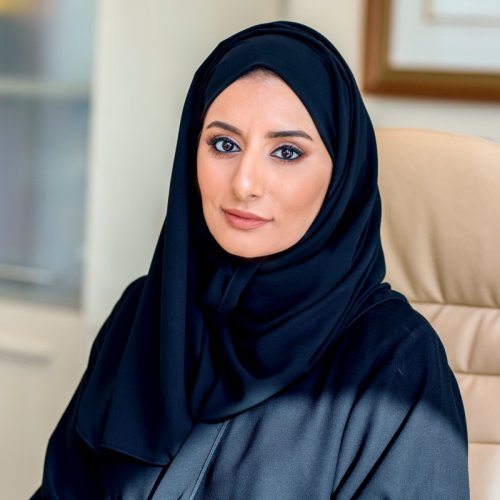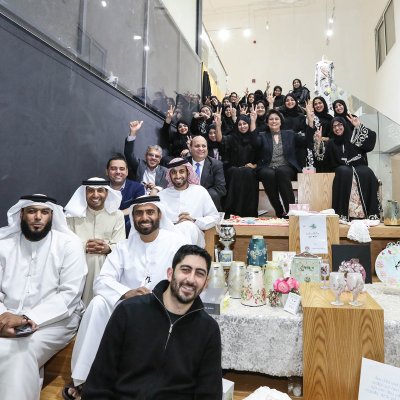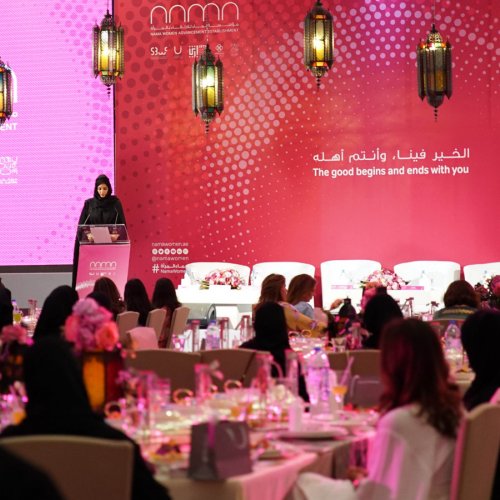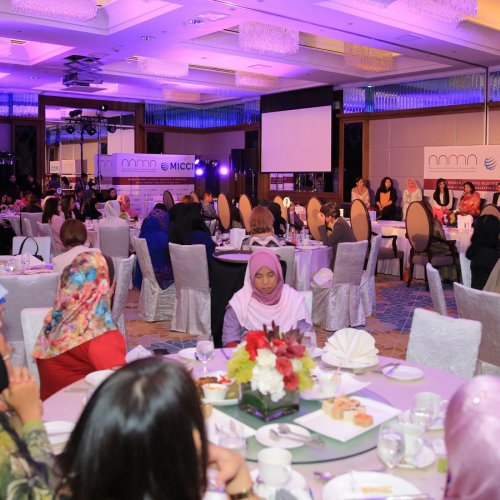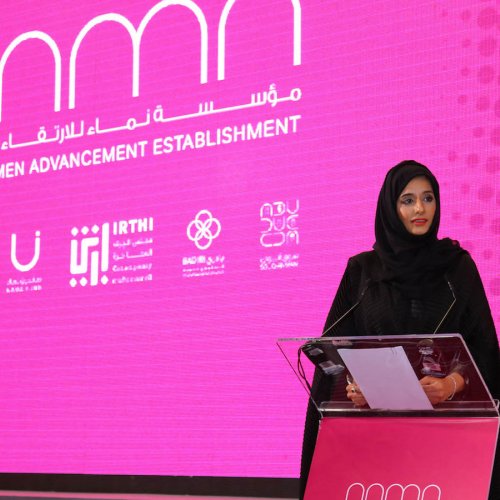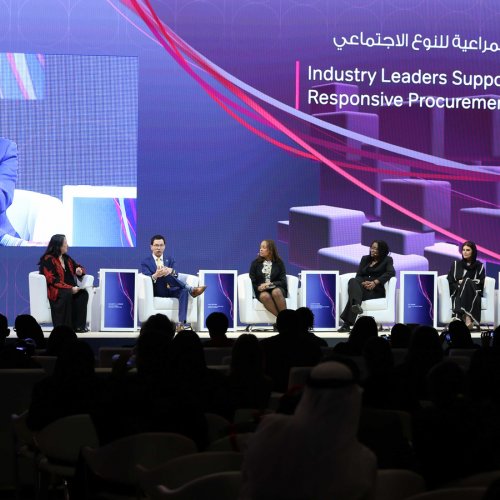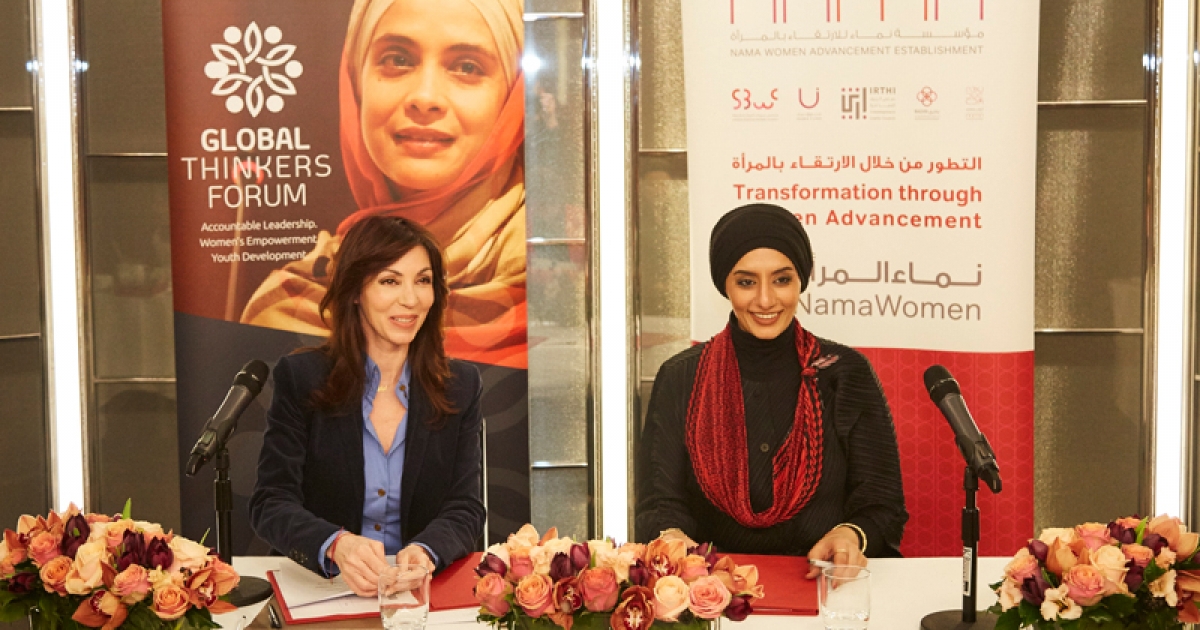“Opportunities for Women’s Economic Development”
Reem Binkaram is the visionary leader of Sharjah's NAMA Women Advancement Establishment. Global Thinkers Forum has partnered with NAMA for a programme that aims to benefit 100 women from the MENA region by 2020. The selected candidates are provided with a personalised development opportunity to address individual learning needs over a period of eight months.
Q. What is NAMA?
A: Established by His Highness Sheikh Dr. Sultan bin Muhammad Al Qasimi, Member of the UAE Supreme Council Ruler of Sharjah, and chaired by his wife, Sheikha Jawaher bint Mohammed Al Qasimi, NAMA’s key role is to raise awareness that women play an integral role in the economy, in the workplace, in innovation and in society. We aim to give practical support to women in terms of gender equality and promote their ability and ambition to shape and influence every aspect of the community.
Going further, NAMA positively encourages policies to support women and actively pursues programmes that support women’s integration into all sectors, rewriting the unwritten rules which can discriminate against the advancement of women. Its five affiliates, Sharjah Business Women Council, Irthi Contemporary Crafts Council, NAMA Fund, Badiri Education and Development Platform, and Anwan, fall under the umbrella of NAMA Women Advancement Establishment.
Emirati women have been one of the cornerstones of the nation’s development since its founding in 1971 and have always worked tirelessly in taking the UAE to its position as a major player on a global stage. NAMA’s intention is to not only continue that contribution but to enhance it through new avenues of industry, business, legislation and politics.
"Accountability is about achieving results without losing ethics"
Q: How have women made progress in the UAE?
A: Today there are many women in leading positions in the UAE and in Sharjah, whether that is in traditional or non-traditional industry, economics, entrepreneurship or policy making. The government support for women in a variety of fields makes for ongoing progress.
As Shaikha Lubna Al Qasimi, Minister of State for Tolerance said, women’s empowerment is a key target in the UAE’s national strategy to be achieved by 2021 and we aim to place the UAE as one of the countries at the forefront of women’s empowerment.
True UAE empowerment and equality for women began with the UAE’s founding father, the late Sheikh Zayed Bin Sultan Al Nahyan and his wife, the Mother of the Nation, Her Highness Sheikha Fatima bint Mubarak who is Chairwoman of the General Women’s Union, which she established in 1975, Supreme Chairwoman of the Family Development Foundation, and President of the Supreme Council for Motherhood and Childhood.
Her Highness is and always will be the ultimate model for supporting women.
The changes that have been made are dramatic and the figures speak for themselves; women now make up 66 percent of public sector workers, 30 percent of which are in leadership roles. They also occupy about 75 percent of positions in education and health sectors. For the first time, the UAE has eight women ministers, one of the highest rates of ministerial representation in the region, and the ratio of women in the Federal National Council stands at 20 percent.
Another telling factor in the progress of women in the UAE is the nation’s ranking as first among 132 countries in the ‘women treated with respect’ indicator of the Social Progress Index – a respect of their past contributions in building the nation, their current roles in advancing the nation, and their future aspirations and ability to play an equal part in leading the nation.
One example of this is the agreement with Accademia Italiana, one of Italy’s most prestigious institutes for fashion and design, whose students used intricate embroidery craft of ‘Talli’ in their design work, inspired by women on the Bidwa Programme. The fashion show was presented on the runway in Italy last year, before being marketed through the Bidwa Programme.
Q: How is Her Highness Sheikha Jawaher working towards tapping into female talent for economic development? Please share some initiatives and examples
A: One of the most important aspects on the journey of empowerment and equity for women is ensuring that the legacy continues. Founded in 2002, Sharjah Business Women Council (SBWC) encourages women entrepreneurs to integrate into the global economy, support the economic output of the nation and develop community ideals for the Emirate of Sharjah.
Badiri Education and Development Platform, the youngest of NAMA’s five entities, aims to boost, reward and showcase the spirit of entrepreneurship amongst women locally and globally. Badiri builds the capacity of women entrepreneurs to participate in various sectors of the economy and provide them with the skills and knowledge to reach their full potential. It also focuses on entrepreneurship development, which it encourages through programmes such as Badiri Women’s Enterprise Development Virtual Academy and Jeel, geared towards creating the next generation of women and young entrepreneurs.
The NAMA Fund, NAMA’s latest highly promising initiative, is a collective effort of NAMA and its local and international partners to mobilise the financial and human resources required to elevate the status of women and guarantee their economic security and worldwide success.
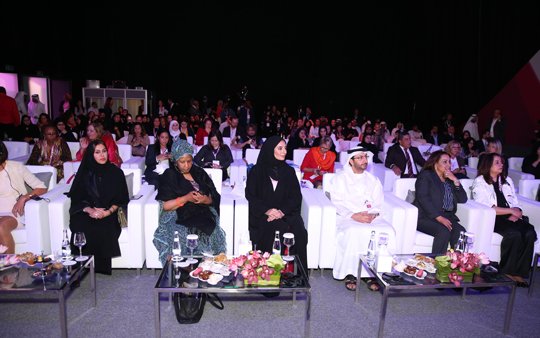
Q: What is your vision for Nama?
A: We have achieved so much, but there are always new ambitions and new benchmarks. It is important for NAMA to not just initiate programmes, campaigns, strategies, training and so on, but also to collate tangible results, feedback and outcomes so that it can become a central source of information and data, and a resource and reference point for future initiatives.
NAMA needs to continue its efforts to be all-inclusive. In the future, I would like to see that expand even further, so that it becomes almost a one-stop-shop for women of different walks of life and different fields of work, supporting their needs and giving them a greater scope for opportunities.
I would also like to see greater cooperation with educational institutions such as the memorandum of understanding signed with the University of Sharjah that was signed recently. The three-year agreement means that the university will be offering diplomas and bachelor’s degree programmes specialising in studies on women's empowerment and, as a highly beneficial result, will exchange and disseminate a number of research and study sources related to women’s empowerment.
Q: How do you define accountability in leadership?
A: For me, accountability has two definitions; the first is about achieving results without losing ethics. It is an honest, self-accountable philosophy, which is essential in a position of authority where you must act in the best interests of the people you represent. The second is being accountable by those very same people – however good someone’s intentions, if their methods are misguided or the results are divisive, the course of action must change.
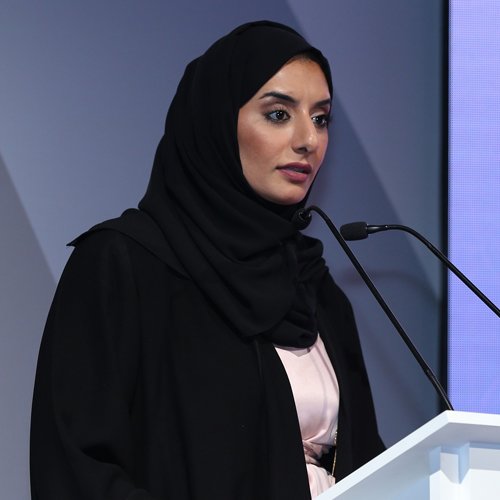
HE Reem Abdel Rahim BinKaram
Director, NAMA Women Advancement Establishment
Reem BinKaram was appointed as Director of NAMA Women Advancement Establishment in 2016 and manages and supports various initiatives under the NAMA umbrella, including Sharjah Business Women Council, Irthi Contemporary Crafts Council, NAMA Fund, NAMA’s educational and development arm and Souq Anwan.
In February 2010, Reem was appointed as a member of the new board of Directors of the Sharjah Tatweer Forum (STF). STF is a non-profit organisation whose Honorary Chairman is His Highness Sheikha Dr. Sultan Bin Mohamed Al Qasimi, Member of the Supreme Council and Ruler of Sharjah. As a think tank, STF works on empowering youth, developing and promoting entrepreneurship, supporting viable projects for Sharjah and fostering community outreach initiatives.
Reem served as Director of Sharjah Children’s Centers (SCC) overseeing development of children with talent and a desire to realise their potential. SCC serves children throughout Sharjah with over fourteen centres of innovation and talent in the emirate.
Reem serves on the board of Rubu Qarn (RQ), a foundation that was established for the purpose of creating UAE future leaders and innovators. The initiative has been designed to start a journey of innovation and leadership for young Emirati generations. The growth and intellectual development of youth is a priority in Sharjah, to nurture a national identity - a culture rich in Arabic and Islamic values and global humanitarian kinship. Aiming to create a strategic umbrella for human capital, RQ will result in the integration and partnership of four Sharjah-based government entities, which are: Sharjah Children Centers, Sajaya Young Ladies of Sharjah, Sharjah Youth Centers and Sharjah Tatweer Forum.
Reem is passionate about philanthropic work and chairs the Pink Caravan Ride for Breast Cancer prevention and awareness. It is a UAE wide equestrian ride accompanied by extensive mobile medical teams which perform free medical examinations during the ten-day campaign in rural and urban areas. The Pink Caravan is recognised as one of the most successful breast cancer awareness campaigns globally and has successfully provided free screenings to 48,499 people since its initiation to-date.
Reem has a bachelors’ degree in Interior Design from the American University of Sharjah and a board member at UAE Girls Guide, UAEGG.
Published: 15/01/2018


